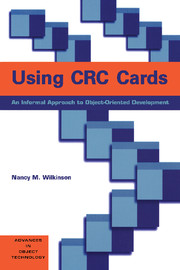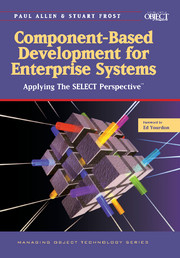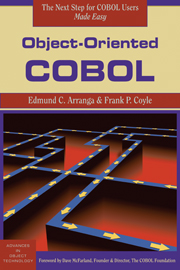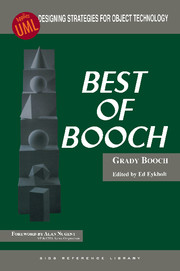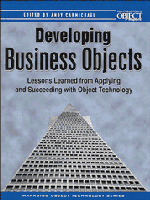Object Development Methods
Object Development Methods addresses how object orientation can be applied to systems analysis and design. An international roster of contributors compare the leading methodologies of Shaller/Mellor, Jacobson, Colbert, Rumbaugh, Graham, Booch, Texel, and Coad/Yourdon among others. The book provides significant insight into the contrasting viewpoints and advantages, common concepts and underlying structures of different object-oriented methods. Practitioners and academics alike will find material here to inform, inspire, encourage, warn, and guide in the improvement and maturation of the software development process. If you are a Systems Analyst/Designer, Programmer, Project Manager, Software Engineer, IT Manager, or Chief Scientist, this book is a must-read to become more familiar with and choose from the top methodologies.
- Discusses and defines key concepts including class/type/set, encapsulation, classification, polymorphism, and interpretation
- Applicable to those who are presently choosing a method or for those who have chosen a method and wish to become familiar with others
- Provides insight into the process and experience of some of the many different object-oriented development methods that have been defined
Product details
January 1994Paperback
9780962747793
0 pages
0kg
Unavailable - out of print November 1997
Table of Contents
- Part I. Introduction:
- 1. Objects: changing software production and procurement A. Carmichael
- Part II. Understanding and Adopting Object Technology:
- 2. Adopting object-oriented software engineering R. Hodgson
- 3. The four dimensions of object-oriented methods and languages G. S. Blair
- 4. Essential techniques for object-oriented design S. Cook and J. Daniels
- 5. Evolution, life cycles, and reuse B. Anderson
- Part III. Methods Comparison:
- 6. Describing and comparing object-oriented analysis and design methods M. Fowler
- 7. Contemplating the universe of methods R. Hodgson
- Part IV. Perspectives on Specific Object-Oriented Methods:
- 8. The Shaller/Mellor method: a formalism for understanding Software architectures C. B. Carter and C. H. Raistrick
- 9. The Booch method: process and pragmatics G. Booch
- 10. The Coad/Yourdon method: simplicity, brevity, and clarity - keys to successful analysis and design M. Rösch
- 11. The Texel method: a pragmatic and field-proven approach P. P. Texel
- 12. The Rumbaugh method (OMT: the selection of an object-oriented analysis method) S. Frost
- 13. The SOMA method: adding rules to classes I. Graham
- 14. Requirements analysis with the object-oriented software development method E. Colbert
- 15. The OOSE method: a use-case-driven approach I. Jacobson, M. Christerson and L. L. Constantine
- 16. The MERODE method: the practical realization of object-oriented business models G. Dedene
- 17. The SSADM method: an object-oriented approach? M. Goodland
- Part V. The Evolving Development Environment:
- 18. Environments R. Daley
- 19. Toward a common object-oriented meta-model for object development A. Carmichael.


